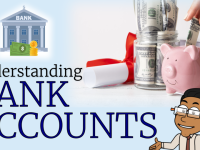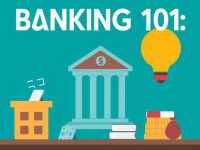Choosing the right bank is a crucial financial decision that can impact your savings, transactions, and overall financial health. With numerous options available, it’s essential to consider various factors to ensure you select a bank that aligns with your needs. Below are some key considerations to help you make an informed choice.

- Identify Your Banking Needs
Begin by assessing your financial activities. Determine whether you need a bank for basic services such as a checking and savings account, or if you require additional services like loans, credit cards, or investment options. Understanding your needs will help narrow down the banks that offer the services you’re looking for. - Consider the Type of Bank
Banks come in various forms, including traditional banks, online banks, credit unions, and community banks. Traditional banks often have a wide range of services and physical locations, whereas online banks may offer better interest rates and lower fees due to reduced overhead costs. Credit unions are member-owned and may provide more personalized service and competitive rates. Community banks often focus on local businesses and customers, providing a more personalized banking experience. - Evaluate Fees and Charges
Different banks have different fee structures. Some charge monthly maintenance fees, ATM fees, overdraft fees, and more. It’s crucial to review these charges and consider how they might affect your finances. Look for banks that offer fee waivers or lower fees for maintaining a minimum balance or setting up direct deposits. - Interest Rates
Interest rates on savings accounts, CDs, and loans can significantly impact your finances. Compare the interest rates offered by different banks to find the most beneficial terms. Online banks often provide higher interest rates on savings accounts compared to traditional banks. - Accessibility and Convenience
Consider how you will access your bank’s services. If you prefer in-person banking, ensure the bank has branches conveniently located near you. For online banking, assess the bank’s mobile app and online platform to ensure they are user-friendly and offer the features you need, such as mobile check deposits and real-time alerts. - Customer Service
Good customer service can enhance your banking experience. Research customer reviews and ratings to gauge the bank’s reputation for service. Consider banks that offer 24/7 customer support and multiple communication channels, such as phone, chat, and email. - Security Features
Security is paramount when it comes to banking. Ensure the bank employs robust security measures, such as two-factor authentication, encryption, and fraud monitoring. Additionally, check if the bank is FDIC-insured, which protects your deposits up to $250,000 per depositor, per bank. - Promotions and Bonuses
Some banks offer sign-up bonuses or promotional rates for new customers. While these can be attractive, ensure that they align with your long-term banking needs and that you understand any requirements or conditions associated with these offers. - Reputation and Stability
Research the bank’s history, financial stability, and reputation in the industry. A stable bank with a strong track record is less likely to encounter financial difficulties that could affect your accounts. - Additional Services
If you anticipate needing additional services like financial planning, investment advice, or international transactions, look for banks that offer these services. Having all your financial needs met in one place can simplify your financial management.
By carefully considering these factors, you can choose a bank that not only meets your immediate needs but also supports your long-term financial goals. Take the time to compare your options, and don’t hesitate to reach out to potential banks with any questions or concerns before making your final decision.




